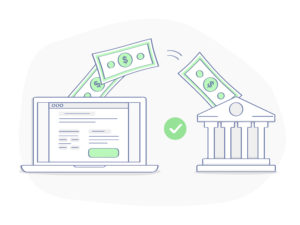Depreciation and Section 179 Expense Updates

Depreciation and Section 179 Expense Updates
2007 Changes
Increased section 179 limits. The maximum section 179 deduction you can elect for qualified section 179 property placed in service in 2007 has increased to $125,000 ($160,000 for qualified enterprise zone and qualified renewal community property). This limit is reduced by the amount by which the cost of qualified property placed in service during the tax year exceeds $500,000.
For qualified section 179 Gulf Opportunity (GO) Zone property, the maximum section 179 deduction is higher than the deduction for most other section 179 property.
Depreciation limits on electric vehicles. The higher maximum depreciation deduction for a passenger automobile that is an electric vehicle does not apply to electric vehicles placed in service after December 31, 2006.
Limited reduction in Liberty Zone tax benefits. The special depreciation allowance for qualified New York Liberty Zone property does not apply to property placed in service after December 31, 2006 (except for qualified nonresidential real property and qualified residential rental property).
2008 Changes
Increased Section 179 limits. The maximum section 179 deduction you can elect for qualified section 179 property you placed in service in tax years that begin in 2008 has increased to $250,000 ($285,000 for qualified enterprise zone property and qualified renewal community property).
This limit is reduced by the amount by which the cost of section 179 property placed in service in the tax year exceeds $800,000. For qualified section 179 Gulf Opportunity (GO) Zone property placed in service in certain counties and parishes of the GO Zone, the maximum deduction is higher than the deduction for most section 179 property.
Special depreciation allowance for certain property. You may be able to take an additional first year special depreciation allowance for certain qualified property (defined below).
The allowance is an additional deduction of 50% of the property’s depreciable basis (after any section 179 deduction and before figuring your regular depreciation deduction).
Property that qualifies for this special depreciation allowance include the following.
- Tangible property depreciated under the modified accelerated cost recovery system (MACRS) with a recovery period of 20 years or less
- Water utility property
- Off-the-shelf computer software
- Qualified leasehold improvement property
Qualified property must also meet all of the following tests.
- You must have acquired qualified property by purchase after December 31, 2007, and before January 1, 2009. If a binding contract to acquire the property existed before January 1, 2008, the property does not qualify.
- Qualified property must be placed in service after December 31, 2007, and before January 1, 2009 (before January 1, 2010, for certain transportation property and certain property with a long production period).
- The original use of the property must begin with you after December 31, 2007.
Property that does not qualify for special depreciation allowance include the following.
- Property placed in service and disposed of in the same tax year.
- Property converted from business use to personal use in the same tax year it is acquired. Property converted from personal use to business use in the same or later tax year may be
- Depreciation limits on business qualified GO Zone property.
- Property required to be depreciated under the alternative depreciation system (ADS).
- Property included in a class of property for which you elected not to claim the special depreciation allowance.vehicles
Depreciation limits on business vehicles. The total depreciation deduction (including the section 179 deduction) you can take for a passenger automobile (that is not a truck or a van) you use in your business and first placed in service in 2008 is $2,960 ($10,960 for automobiles for which the special depreciation allowances applies).
The maximum deduction you can take for a truck or a van you use in your business and first placed in service in 2008 is $3,160 ($11,160 for trucks or vans for which the special depreciation allowance applies).
Caution. These limits are reduced if the business use of the vehicle is less than 100%
We hope you found this article about “Depreciation and Section 179 Expense Updates” helpful. If you have questions or need expert tax or family office advice that’s refreshingly objective (we never sell investments), please contact us or visit our Family office page or our website at www.GROCO.com. Unfortunately, we no longer give advice to other tax professionals gratis.
To receive our free newsletter, contact us here.
Subscribe our YouTube Channel for more updates.

Alan Olsen, is the Host of the American Dreams Show and the Managing Partner of GROCO.com. GROCO is a premier family office and tax advisory firm located in the San Francisco Bay area serving clients all over the world.
Alan L. Olsen, CPA, Wikipedia Bio

GROCO.com is a proud sponsor of The American Dreams Show.

The American Dreams show was the brainchild of Alan Olsen, CPA, MBA. It was originally created to fill a specific need; often inexperienced entrepreneurs lacked basic information about raising capital and how to successfully start a business. Alan sincerely wanted to respond to the many requests from aspiring entrepreneurs asking for the information and introductions they needed. But he had to find a way to help in which his venture capital clients and friends would not mind.
The American Dreams show became the solution, first as a radio show and now with YouTube videos as well. Always respectful of interview guest’s time, he’s able to give access to individuals information and inspiration previously inaccessible to the first-time entrepreneurs who need it most. They can listen to venture capitalists and successful business people explain first-hand, how they got to where they are, how to start a company, how to overcome challenges, how they see the future evolving, opportunities, work-life balance and so much more..
American Dreams discusses many topics from some of the world’s most successful individuals about their secrets to life’s success. Topics from guest have included:
Creating purpose in life / Building a foundation for their life / Solving problems / Finding fulfillment through philanthropy and service / Becoming self-reliant / Enhancing effective leadership / Balancing family and work…

MyPaths.com (Also sponsored by GROCO) provides free access to content and world-class entrepreneurs, influencers and thought leaders’ personal success stories. To help you find your path in life to true, sustainable success & happiness. It’s mission statement:
In an increasingly complex and difficult world, we hope to help you find your personal path in life and build a strong foundation by learning how others found success and happiness. True and sustainable success and happiness are different for each one of us but possible, often despite significant challenges. Our mission at MyPaths.com is to provide resources and firsthand accounts of how others found their paths in life, so you can do the same.
[/vc_column_text][/vc_column][/vc_row]
[vc_row][vc_column][vc_column_text]
IRS’s Direct Pay Service Is Gaining Popularity
Everyone seems to love things that are automatic. In fact, when it comes to financial transactions, cash is hardly ever involved anymore, these days, as everything happens with either swipes or pushing buttons. The same is true with taxes, including the popular e-file option for millions of taxpayers every year. It turns out getting your…
Federal Government Looking for Ways to Get to Retirement Funds
Just when you thought your retirement account was safe from the federal government, think again. That’s’ because according to the Government Accountability Office, there are around 9,000 U.S. taxpayers who have a minimum of $5 million in an individual retirement account. Now some lawmakers are taking a closer look at these accounts because as Senate…
An Artistic Way to Pay Your Taxes
Many wealthy individuals enjoy collecting things, including artwork. While artwork can be a source of income for some, as well as solely a collectible for others, it can’t be used it to pay your taxes. Well, at least not in the United States, anyways. However, there are some countries in which artwork is a completely…
Life Is Not Fair – Neither Is Every State Tax System
Life Is Not Fair – Neither Is Every State Tax System We all know that life isn’t fair, and that means that many specific aspects of life aren’t fair either. Of course, according to most people taxes always fall into the unfair category as well. So just how fair or unfair are your taxes? No,…




